Reshaping Nature Through Gene Drives
A new technology, called gene drives, has the power to spread any genetic instructions you wish throughout an animal or plant species in the wild. It might let us restore ecosystems ravaged by invasive species, or help species adapt to climate change. And, it might save millions of children from dying of malaria. But could altering nature in this way, and on this scale, have unintended consequences? And, when it comes reshaping ecosystems, who needs to say yes?
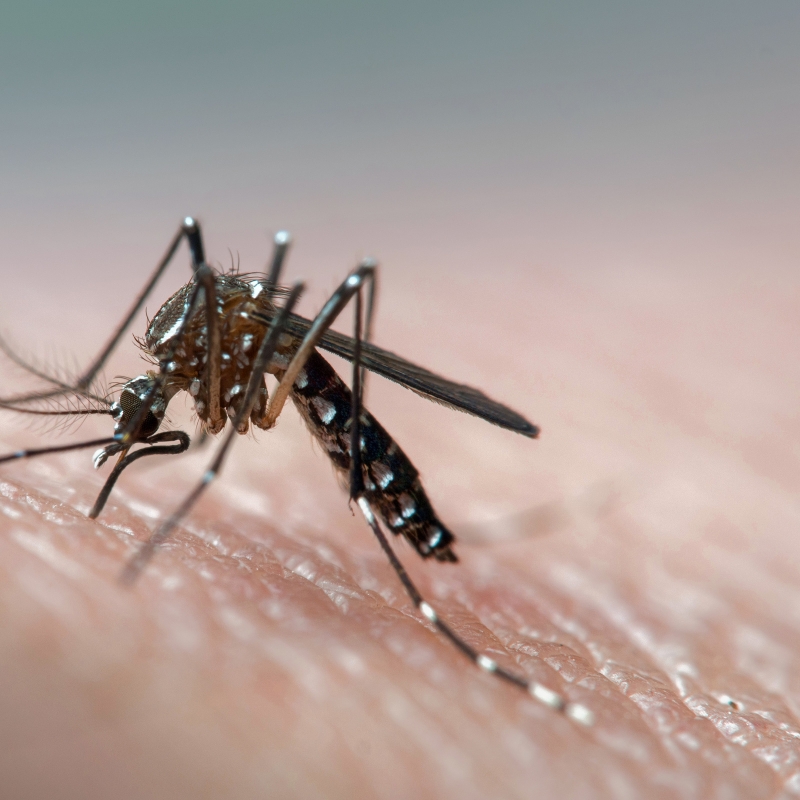
Guests
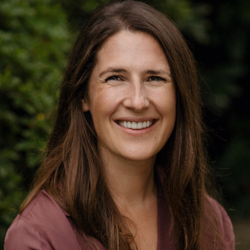
Natalie Kofler
Founding Director,
Editing Nature

A trained molecular biologist, Natalie Kofler is passionate about ensuring diverse voices and viewpoints steer science and technology. She founded Editing Nature, a global initiative to steer responsible development and deployment of genetic technologies. Kofler also leads curriculum development and is a strategic advisor for the Scientific Citizenship Initiative at Harvard Medical School, where she currently teaches Environmental Ethics and Justice at the Center for Biomedical Ethics.
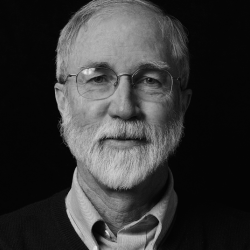
James Collins
Ullman Professor of Natural History and the Environment,
Arizona State University

Remarkably, James Collins developed his lifelong love of nature growing up in New York City. Collins is an evolutionary ecologist whose research group studies the role of host-pathogen interactions in the decline and extinction of species. He co-chaired a U.S. National Academy of Sciences study on gene drives. He is Virginia M. Ullman Professor at Arizona State University and previously served as head of the Biological Sciences Directorate at the U.S. National Science Foundation.
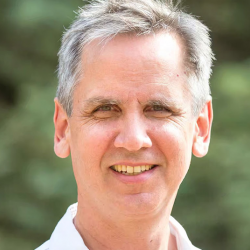
Austin Burt
Professor of Evolutionary Genetics,
Imperial College London

Austin Burt’s early career studying natural populations of yeast led him to conceive the idea of using genetic tools — called gene drives — to control malaria and potentially save the lives of millions of children. Today, he is a professor of evolutionary genetics at Imperial College London and a co-founder of the UK-based Target Malaria initiative, which is working with scientists and governments in Burkina Faso, Ghana, Mali and Uganda.
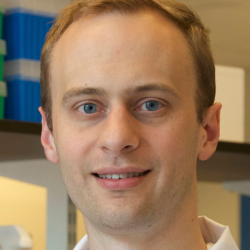
Kevin Esvelt
Director, Sculpting Evolution group,
MIT Media Lab

Kevin Esvelt knew he wanted to become a bioengineer after a trip to the Galapagos. Esvelt is currently director of the Sculpting Evolution group at MIT, which invents new ways to study and influence the evolution of ecosystems. Soon after the development of CRISPR genome editing in mammals, Esvelt described how the method could be used to create ‘gene drives’ to alter wild populations. He works to improve gene drives and to ensure that community discussions always precede and guide the development of technologies that will impact the shared environment.
Photo credit: E. DeBenedictis
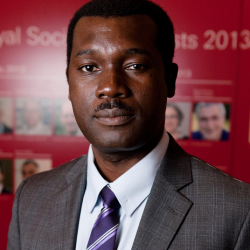
Abdoulaye Diabaté
Head of Medical Entomology and Parasitology,
Research Institute in Health Sciences in Burkina Faso

Abdoulaye Diabaté grew up in Burkina Faso, did his Ph.D. work abroad, and then returned home to fight malaria. For him, the fight is personal — he and his siblings were repeatedly sickened by the disease. Diabaté leads the medical entomology laboratory at the Research Institute in Health Sciences in Burkina Faso, where he has done extensive work on resistance to insecticides. He works with the Target Malaria initiative to explore using gene drives to fight malaria in Africa.
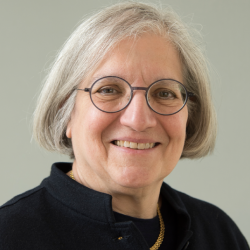
Dyann Wirth
Professor of Infectious Diseases,
Harvard T.H. Chan School of Public Health

Dyann Wirth is an expert in the molecular biology of tropical disease, who has studied malaria for over 35 years. She is a professor of infectious diseases at the Harvard T.H. Chan School of Public Health, where she also chairs Harvard’s Integrated Life Sciences Program. She is the current chair of the WHO Malaria Policy Advisory Committee. Wirth and her lab have pioneered the use of genomic tools to understand the fundamental biology of the malaria parasite and how it becomes resistant to antimalarial drugs.

Zahra Moloo
Investigative Journalist and Filmmaker

Zahra Moloo is an investigative journalist, researcher, and documentary filmmaker from Kenya, based in Montreal. Her work focuses on East and Central Africa. Her articles and films have appeared in Al Jazeera, BBC Focus on Africa magazine, CBC Docs, The New Humanitarian, CCTV’s Faces of Africa, Africa is a Country and the Jacobin. She works for ETC Group, an organization that monitors the impact of emerging technologies and corporate strategies on biodiversity, agriculture and human rights. Website: https://zahra-moloo.com/
Photo credit: Noemie Lesquins
Featured in the Boston Globe
The ethical way to alter organisms
An OpEd by guest Kevin Esvelt.
Advances in genetic engineering test democracy’s capacity for good decision-making
An OpEd by guest Natalie Kofler and Riley Taitingfong
Referenced in the Episode
Gene Drives on the Horizon Advancing Science, Navigating Uncertainty, and Aligning Research with Public Values
The National Academy’s 2016 report, chaired by guest Dr. James Collins, which examines a range of questions about gene drives. The report “outlines the state of knowledge relative to the science, ethics, public engagement, and risk assessment as they pertain to gene drive research and the governance of the research process.”
Site-specific selfish genes as tools for the control and genetic engineering of natural populations.
Guest Austin Burt’s seminal paper, published in 2003, which laid out the theory for how gene drive systems could be used to fight malaria.
Concerning RNA-guided gene drives for the alteration of wild populations
Guest Kevin Esvelt’s 2014 paper which outlined his proposal about how to build a CRISPR-based gene drive.
A Question of Consent: Exterminator Mosquitoes in Burkina Faso
A 2018 video by filmmaker and activist Zahra Moloo alleging that Target Malaria has not followed the UN Convention on Biodiversity conditions for the environmental release of gene drive organisms. (Read companion article “Cutting Corners on Consent”)
A 2018 paper from The Royal Society about the local response to Kevin Esvelt’s Mice Against Ticks project.
Editing Nature: Local Roots of Global Governance
This 2018 proposal from guest Natalie Kofler and colleagues suggests creating a governing body to regulate gene drive technology. The authors call for a regulatory body to convene communities, technology developers, and governmental and nongovernmental organizations in ways that ensure inclusive deliberations regarding gene drive technology.
Further Learning
The Extinction Invention
A 2013 piece in the MIT Technology Review by Antonio Regalado which considers whether the technology to eliminate mosquito populations is too risky to ever use.
On Mitigating the Cruelty of Natural Selection Through Humane Genome Editing
A 2020 publication from Kevin Esvelt and Rey Edison in Neuroethics and Nonhuman Animals on the “moral responsibilities” of using genetic engineering to improve the lives of animals.
‘Gene Drives’ Are Too Risky for Field Trials, Scientists Say
A 2017 story from The New York Times about Kevin Esvelt’s fear of the risks that come with full power gene drives.
Open Letter: Research on Gene Drive Technology Can Benefit Conservation and Public Health
An open letter to The United Nations’ Convention on Biodiversity arguing against a moratorium on gene drives. Many scientists, researchers, and government officials signed.
Driving Towards Ecotechnologies
A 2018 review of attempts to alter ecosystems using biological methods, published in Pathogens and Global Health. Kevin Esvelt and his team identify key determinants of social acceptance, and chart a path for safe and widely supported use.
Gene Drive Should Be a Nonprofit Technology
A 2018 opinion piece from Kevin Esvelt published in STAT.
750 million genetically engineered mosquitoes approved for release in Florida Keys
A 2020 news piece about a planned 2021-2022 release of over 750 million genetically modified mosquitoes into the Florida Keys.
The GeneConvene Virtual Institute collects, curates, and shares knowledge to advance understanding of gene drive technologies and selfish genetic elements. The GeneConvene Virtual Institute is an initiative of the GeneConvene Global Collaborative, a program within the Foundation for the National Institutes of Health.
